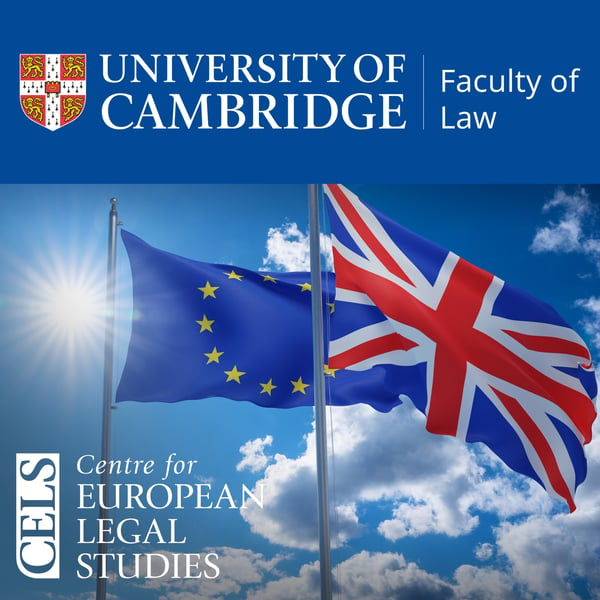'Session 1: Free Movement of Persons and Establishment' - Eleanor Spaventa: CELS Brexit Symposium
Cambridge Centre for European Legal Studies (CELS) Podcast
Faculty of Law, University of Cambridge
0 • 0 Ratings
🗓️ 15 March 2019
⏱️ 27 minutes
🧾️ Download transcript
Summary
Transcript
Click on a timestamp to play from that location
| 0:00.0 | Thank you very much for inviting me. |
| 0:05.2 | It's great to be here again. |
| 0:07.4 | I was telling Felicity that this is pretty much the only good thing about Brexit |
| 0:12.4 | is that I got to visit Cambridge twice this year. |
| 0:16.4 | I cannot find any other positive in it. |
| 0:21.6 | So I was here in October also discussing citizens' rights, |
| 0:27.6 | so I didn't know whether I had more or less the same audience. |
| 0:33.6 | And for this reason, I concentrated more on what might happen if we do not reach a deal or if we change the withdrawal agreement. |
| 0:44.8 | I don't think even if the withdrawal agreement were to be changed, I think if there is a deal, the citizens part will remain as it is. |
| 0:53.2 | I don't think the European Parliament would allow it to be changed. |
| 0:56.8 | And I don't think there would be political interest on either side to reopen that. |
| 1:03.6 | So by means of introduction, just to remind you what is in the withdrawal agreement is the aim is to, for Brexit, to be the least destructive possible for EU citizens in the UK and UK citizens in the EU. |
| 1:21.9 | And pretty much the aim is to allow this status, to grant a special status to EU citizens and UK citizens, |
| 1:31.3 | what I call Brexit citizens after Brexit, that will last for their lifetime and gives rights that are similar, |
| 1:41.3 | although not equivalent to what they have currently. |
| 1:45.0 | So the idea is that Brexit citizens would be entitled to work and leave where they reside. |
| 1:51.0 | And something possibly the most important bit of the withdrawal agreement for citizens is that the evidence needed will be much lighter than it might be |
| 2:05.0 | otherwise. So the way out to prove that you were in the country, that you were working there, |
| 2:09.3 | that you were lawfully resident. The withdrawal agreement anyway is in any case problematic |
| 2:16.3 | because it leaves a number of categories very vulnerable, |
| 2:21.3 | especially children, disabled people, and it has a greater impact on women than it has on men, probably. |
| 2:31.3 | But the withdrawal agreement still guarantees the life and the continuity of rights of citizens. |
... |
Please login to see the full transcript.
Disclaimer: The podcast and artwork embedded on this page are from Faculty of Law, University of Cambridge, and are the property of its owner and not affiliated with or endorsed by Tapesearch.
Generated transcripts are the property of Faculty of Law, University of Cambridge and are distributed freely under the Fair Use doctrine. Transcripts generated by Tapesearch are not guaranteed to be accurate.
Copyright © Tapesearch 2025.

